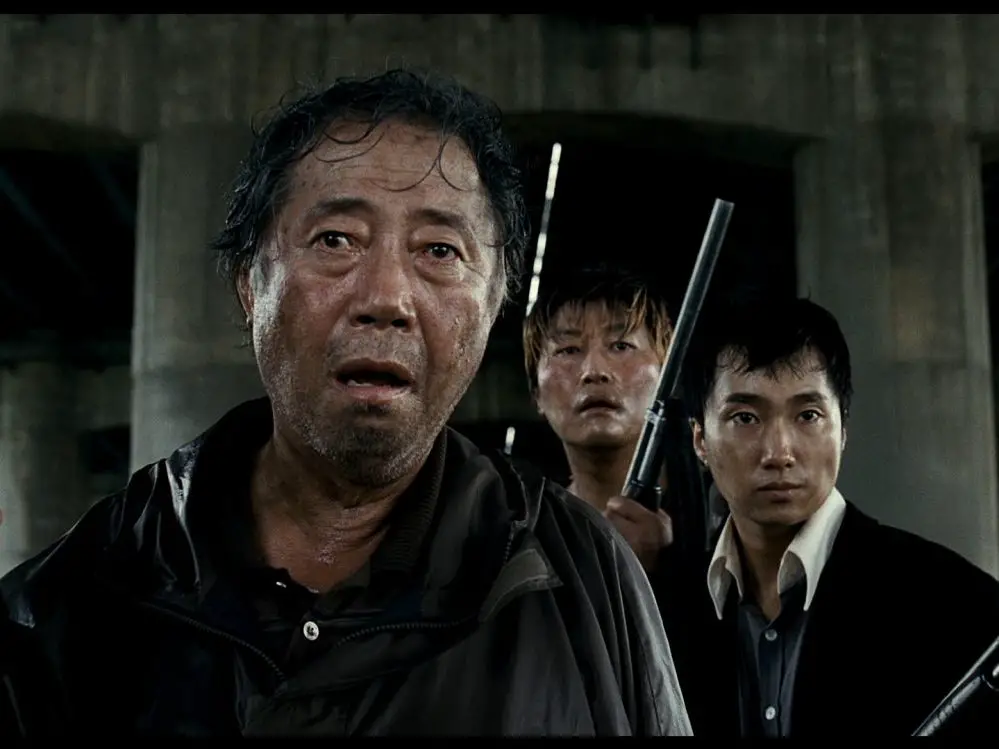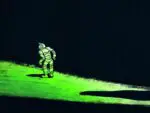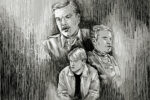Want to watch a movie about a man-made monster? A political satire on U.S. actions in South Korea? Or a story about a family coming together in the face of disaster? Bong Joon-ho’s “The Host” is the movie to check out.
During the 92nd Academy Awards ceremony, the South Korean director’s movie “Parasite” became the first non-English language film to win the award for best picture. While “Parasite” is now lauded as his biggest success, “The Host” (2006), starring the same Song Kang-ho that features in his Oscar-winner, is a must-watch movie for film-lovers. Spoiler alert: Two main characters die in the movie.
“The Host” tells the story of one father and his family’s attempts to rescue his daughter, who was snatched by a monster that emerged from the Han River. The movie begins in 2000. An American scientist orders his assistant to dump 200 bottles of contaminated formaldehyde down the drain, knowing that the drain connects to the Han River, which runs through Seoul.
Six years later, our protagonist Park Gang-du runs a snack bar with his aging father, Park Hie-bong, near the Han River. A huge creature emerges from the water and starts attacking people. In the midst of the chaos, Park Gang-du loses his daughter, Hyun-seo, who gets taken by the river monster. The government declares a public health emergency and imposes quarantine on the victims of the attack to hide the monster’s origins. In order to save Hyun-seo, Park Gang-du and his family must evade the authorities, who have declared Hyun-seo dead.
What inspired Bong Joon-ho to make such a monster film? In an interview with KPBS, Bong said that he dreamed of producing a film about a monster coming out of the Han River since his high school years. After a fisherman found a deformed fish in the water back in 2000, Bong had the idea to make his dream movie.
A Political Satire
It is obvious that the same chemical dumping incident, which inspired “The Host,” was also a point of criticism in the movie. In 2000, American scientist Albert McFarland allegedly ordered 480 bottles of formaldehyde to be poured down the drain at a U.S. military base in South Korea. The incident caused a riot, led by a group called Green Korea United, against U.S. involvement in South Korea.
While the portrayal in “The Host” can be interpreted as blatant anti-American sentiment at first glance, the movie addresses the very real U.S. environmental negligence in foreign countries. Would the U.S. act as careless if the same incident was domestic? This is a classic case of NIMBY— “Not in My Backyard.” And let’s not forget the monster, or “gwoemul” in Korean. Formed from mutations due to formaldehyde, the monster is the symbolic manifestation of the environmental harm that the U.S. caused in South Korea.
“The Host” also references Agent Orange — a herbicide that the U.S. used in chemical warfare against Vietnam. Renamed “Agent Yellow,” the U.S. military uses chemical warfare to kill the monster at the end of the movie. While ending the monster was the official purpose of “Agent Yellow,” the movie intentionally shows the military releasing the chemical in a crowd of protesters. Coincidence? I think not.
Comedic Family Moments Turn Somber
“The Host” starts out with lighthearted moments, particularly with the father, Park Gang-du. He naps while manning the snack bar and he trips and falls in excitement when he runs to see his daughter Hyun-seo who has just returned home from school. Another interaction that I love is when the grandfather, Hee-bong, scolds his son for snacking on the dried squid — a hot snack in Korea — that was intended for customers. Hee-bong later reveals that Gang-du’s clumsiness comes from protein deficiency. He blames himself for being a negligent parent as Park Gang-du resorted to eating scraps and whatever he could steal to feed himself.
Another family moment that I love is when Park Gang-du and his daughter, Hyun-seo, gather around the TV to cheer for Gang-du’s sister, Nam-joo, at her archery competition. Hee-bong enters the trailer, but he refuses to watch out of second-hand anxiety. It’s a scene of family solidarity, with the exception of Gang-du’s brother, Nam-il, before everything goes downhill. It was heartbreaking to see the family reunion: a family that consisted of three generations and five members reduced to three.
Final Thoughts
After watching “The Host,” I must say that I really enjoyed the movie in its entirety. The characterization of the characters was done in such a way that makes them more human to the viewers. It was easy to empathize with the family and how each member chose to save Hyun-seo. I also love the adjustment of color and saturation as well as the background music. There were also a couple of jump-scares and moments that kept me at the edge of my seat.
Overall, “The Host” is a must-watch monster film directed by Bong Joon-ho. Other films that he directed include “Memories of Murder,” “Mother,” “Snowpiercer” and “Okja.” The actor who played Park Gang-du, Song Kang-ho, stars in “Memories of Murder” as one of the main protagonists. He became well-known for his roles in “Snowpiercer” and, of course, “Parasite.” Other actors in “The Host” reappear in Bong Joon-ho’s other works as well. Go Ah-sung went on to play larger roles in “Snowpiercer” and other works including “Thread of Lies” and “Office” after her role as Hyun-seo in “The Host.”
Which Bong Joon-ho movie is your favorite?

















